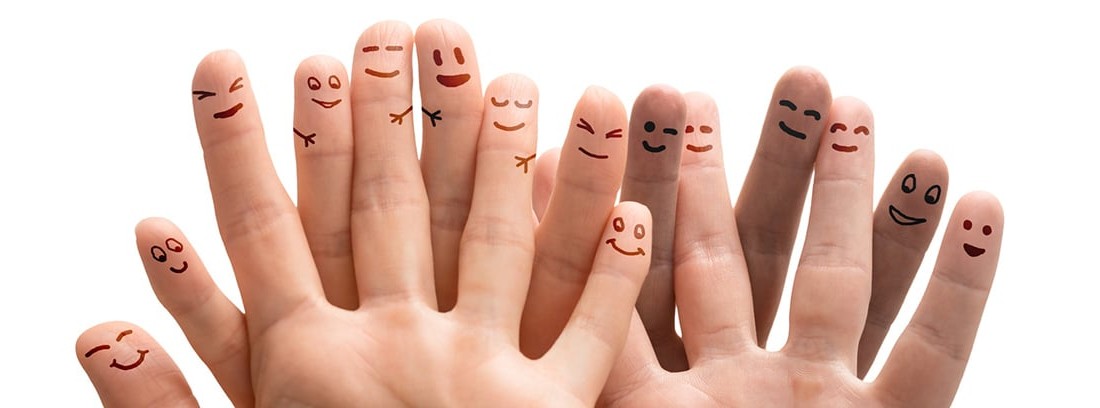New behaviors after COVID 19

As a result of the health crisis, a whole series of values have been deployed that reinforce the sense of community. The applause of gratitude at 8pm, neighborhood cooperation initiatives, collaborative apps, companies that have offered your services for free ... what behaviors have changed?
Prosocial behavior
The current health crisis confronts us through our fragility, as necessarily interdependent beings. Common action has been necessary to turn the contagion curve and redirect the situation. And it is that the human being has evolved more thanks to the cooperation than competition. The great advances for humanity have been built from the teamwork and shared effort.
The prosocial behaviors are attempts to satisfy the need for physical and emotional support of a person or group that has positive social consequences. They are voluntary behaviors that are adopted to care for, assist, comfort and help others, for example, rescue behaviors, donation, assistance, volunteering and social support.
exist three types from behaviors prosocial:
- Physical aid: Physical well-being and health, basic and material needs of others.
- Emotional help: Psychological support to motivate, comfort, rebalance or promote growth.
- Social help: Ethical-social construction of a coexistence environment based on the common good, justice and peace.
In turn, each of these three types of help can have two areas of intervention:
- Intra-group: It is the help that is carried out within the own group, family, class, ethnic group or community.
- Intergroup: It is the one that is carried out in different environments than oneself, far away on a cultural, religious or ideological level.
What determines prosocial behavior?
Some of the variables that increase prosocial behavior are:
- Self-control capacity.
- Self confidence.
- Positive self-concept.
- Emotional stability.
- Sympathy.
- Belief of social self-efficacy.
- Moral reasoning.
- Need for agreeableness.
- Education level.
- Extraversion.
- People with less self-esteem, impulsive or little empathic tend to be less inclined to help others.
Health effects
There are studies that confirm that a low frequency of prosocial behaviors constitutes a risk factor for behavior problems and affective disorders. Thus, the beneficial effects of prosocial behavior are not only for the recipient, but also extend to the person who produces it.
Prosocial behaviors are a protective psychological factor for emotional health in the future, as it makes the person more competent at an individual and social level:
- Increase self-esteem. The gratitude and recognition derived from helping others contribute to developing positive feelings towards oneself, acceptance by others and support by those others when they are needed. It is the fish that bites its tail: the more self-esteem, the more prosocial behaviors and the more prosocial behaviors, the more self-esteem.
- Reduce anxiety and depression.
- Increase the level of energy and vitality.
- Reduce aggressiveness.
On the other hand, prosocial behaviors not only improve the, but also the Physical Health. They release dopamine (a natural reward), are related to the hypothalamus (which regulates basic functions such as sleep, hunger, metabolism, temperature ...) and promote various neurological benefits. Some effects would be:
- They decrease physical pain.
- They improve sleep.
- They reduce stress.
How to increase prosocial behaviors?
- Behaviors are based on values: generosity, gratitude, altruism ... Changing priorities is possible, but first you have to want to do it.
- Reflect on how you can do your bit. In order to increase the quality and quantity of our prosocial behaviors, it is necessary to increase our repertoire of possibilities. Brainstorm what you can contribute on a physical, emotional and social level, both intra-group and inter-group. Knowing more leads us to do more and better.
- Remember that helping is not only doing but also stopping doing. For example, not leaving the house during confinement was a form of social contribution. Not spreading catastrophic or false messages is also a way to help.
- It is important create a social identity in which we all feel included and thus participate. For example, increasing awareness that if I take risks individually I am creating problems at the collective level (I can transmit the virus to other people).
- The selfish behaviors usually due to ex. I do not protect myself with a mask because I am afraid to accept that I may be infected or infect.
- Think about what you have learned from this situation and what part of your prosocial would you like to keep over time.
- But above all: act. Don't intellectualize, put it into practice.
- Prosocial behaviors have intensified. They are attempts to satisfy the need for physical and emotional support of a person or group that has positive social consequences.
- These types of behaviors (rescue behaviors, assistance, volunteering, social support) not only improve emotional health, but also physical health.
- The behaviors are based on values: generosity, gratitude, altruism ... Changing priorities is possible, but first you have to want to do it.
(Updated at Apr 14 / 2024)